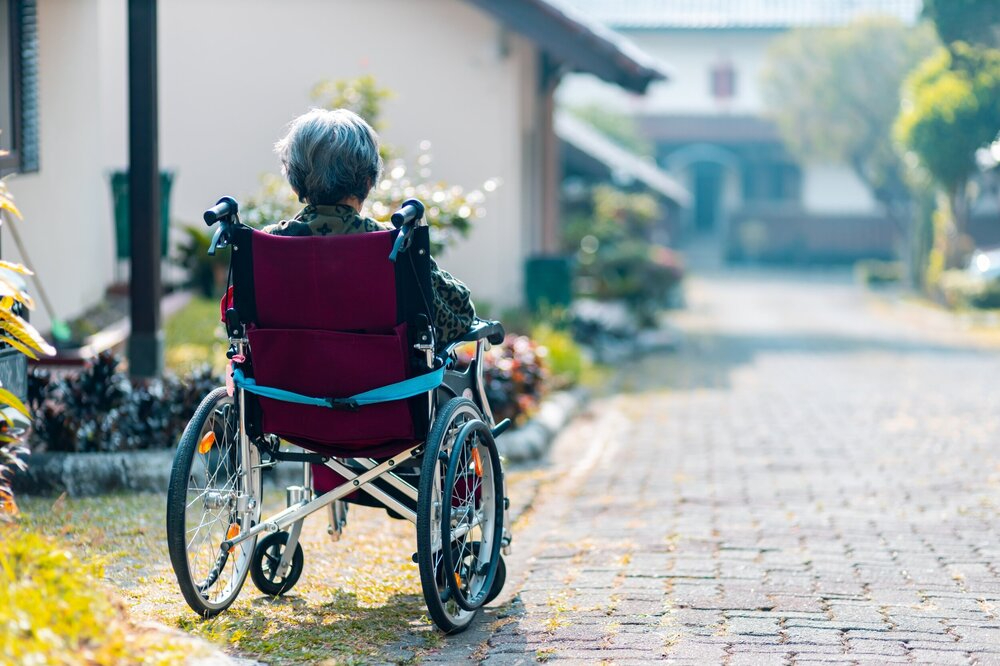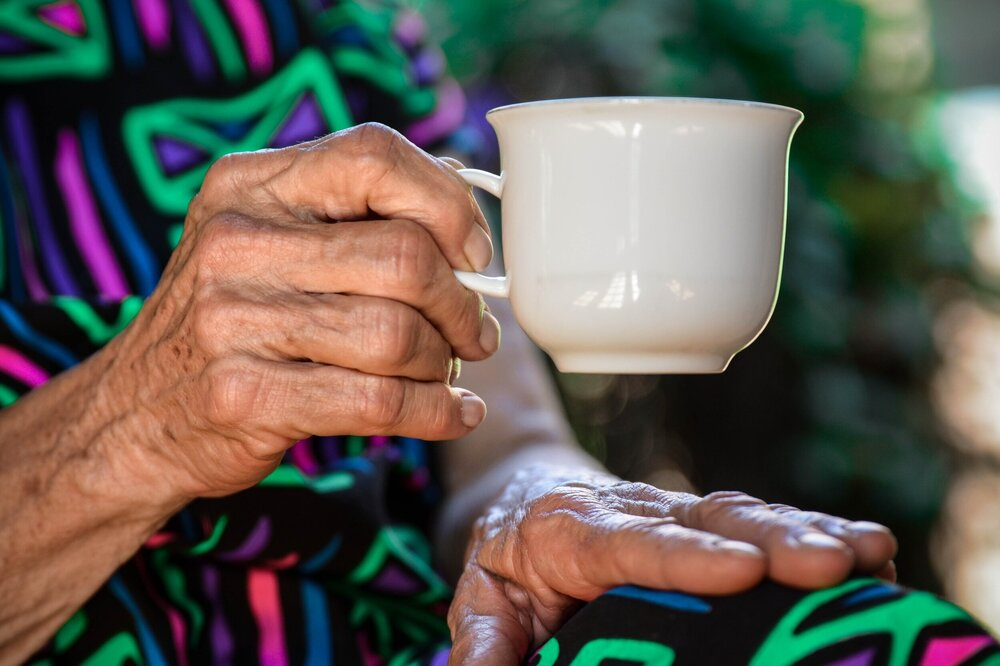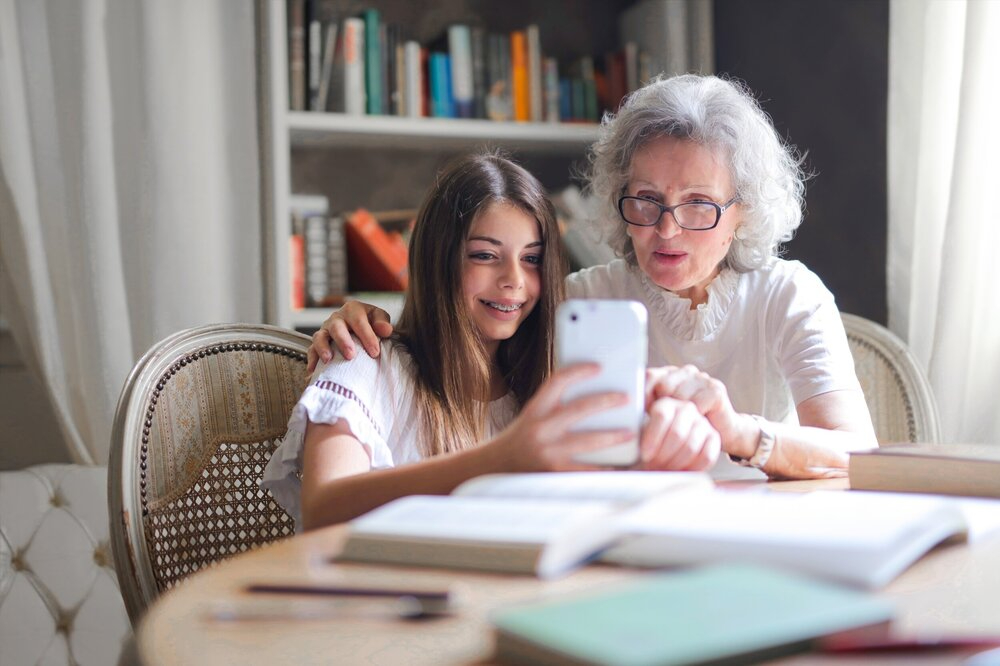Your mental health is just as important as your physical health. As you get older, changes in your situation or painful events can affect your mental health making you more vulnerable to low moods, anxiety or depression.
Loneliness, bereavement and loss, illness and chronic pain, money worries and a loss of independence are just some of the issues which could affect your mental health, although sometimes there may be no obvious cause.
If you, or an older person you know, is experiencing negative feelings that don’t go away then there is plenty of support available to help.
In this section of our website, we guide you through the sort of information, help and support that is available for older people to help you improve your mental wellbeing.
 Looking after mental health is important for people living with dementia. The condition means they may need more reassurance that they are valued than others and they need activities and stimulation to help them remain alert and motivated.
Looking after mental health is important for people living with dementia. The condition means they may need more reassurance that they are valued than others and they need activities and stimulation to help them remain alert and motivated.
Charities like Alzheimer’s Society and Dementia UK have information and advice for people living with dementia, and those caring from them.
Locally, the Alzheimer Café Isle of Wight can offer great support and their website has a wealth of links and resources to help those with dementia.
Isle Help, the website run by the Isle of Wight Citizens Advice Service also contains a useful list of health support resources as well as a Dementia Directory to help you find support in your area.
Admiral Nurses work with families to ensure that they are better able to understand and cope with the changes that can occur with dementia, by giving them the knowledge to understand the condition and its effects, and the skills to improve communication and behaviours. This collaborative working enables the family to stay together for as long as possible. To access this service the person living with dementia must be registered with a GP on the Isle of Wight and the carer must be providing care and support for the person with a diagnosis of dementia. Referrals are currently open via the Memory Service and Isle of Wight GPs. For more information please contact Isle of Wight NHS Tel: 01983 822099 extension: 5386. Website: www.iow.nhs.uk
If you are a carer looking after someone with dementia you might also find this information from Carers IW helpful. See also the Carers section of our website.
 There are several organisations providing mental health support for older people on the Isle of Wight:
There are several organisations providing mental health support for older people on the Isle of Wight:
Age UK Isle of Wight
Age UK Isle of Wight provides free independent, impartial and confidential information and advice on almost any topic to help people make informed decisions. They also offer telephone or digital befriending and wellbeing checks. Tel: 01983 525282 Email: info@ageukiw.org.uk
Your GP surgery
You can also get support from social prescribers, health and wellbeing coaches and mental health practitioners who work in your local GP practice.
Social prescribers can help work with you and your family to help you access a range of local community services that provide practical or emotional support and guidance of a non-medical nature. You can download a leaflet about social prescribing.
Health and wellbeing coaches are specially trained non-clinical members of a GP practice team who help people to manage their own physical and mental health conditions. You can download a leaflet about health and wellbeing coaches.
Mental health practitioners can provide guidance, advice, signposting and treatment for patients with mental health symptoms such as low mood, anxiety or depression.
You can also talk to your GP about how you are feeling, they will be able to offer you advice and refer you to specialist support if needed.
The IOW NHS Memory Service
The Memory Service is for people of any age who are experiencing problems with their memory. The service offers an initial assessment by a Consultant Psychiatrist at the clinic or at home. For people who receive a diagnosis of dementia, they will be referred onto the Memory Service Team for further treatment, support and advice. If you or someone you know are noticing problems with their memory, speak to your GP in the first instance and they can decide whether to refer you to the memory service. The Memory Service can be contacted on 01983 534411 (Monday to Friday, 9am-5pm).
Mountbatten Isle of Wight – help with bereavement and grief
For help with bereavement and grief, Mountbatten on the Isle of Wight has a range of support on its website in the ‘Our care and support’ section. Main Reception telephone: (01983) 529511 and 24-hour specialist advice line (Mountbatten Coordination Centre): (01983) 533331
 Lots of older people have problems with their mental health, you are not alone. There is lots of support available to help you understand what you are feeling and either help you to take steps to help yourself or point you to places where you can get specialist support.
Lots of older people have problems with their mental health, you are not alone. There is lots of support available to help you understand what you are feeling and either help you to take steps to help yourself or point you to places where you can get specialist support.
The NHS website has a dedicated section about mental health, with tools to help you assess your mood, information to help you understand how you are feeling and advice on how to reduce stress and anxiety, lift your low mood and improve your mental wellbeing
There are also sections dedicated to issues affecting older people – such as loneliness and how you can help an older person who you feel may be lonely. Click here for more details.
See also our pages on support for adults with learning disability and autism and support for veterans.
As well as the NHS there is support available from reputable national organisations and charities, including:
 Sometimes just talking to someone about how you feel can help to reduce anxiety levels or lift your mood. It could be a call to a friend or member of your family, or you may prefer to talk to someone you don’t know who can provide a listening ear.
Sometimes just talking to someone about how you feel can help to reduce anxiety levels or lift your mood. It could be a call to a friend or member of your family, or you may prefer to talk to someone you don’t know who can provide a listening ear.
As well as phonelines, there are online communities which can help you feel connected and listened to:
Side by Side
Supportive online community run by Mind, where you can just be yourself. Click here for details.
Samaritans
A friendly ear on the end of a phone 24 hours a day. Click here for details.Telephone: 116 123 (free)
Age UK Advice
A national service offering information and advice to older people and those caring for older people. Click here for details.Telephone: 0800 169 65 65 (national line – free)
Age UK Isle of Wight
A local service providing Isle of Wight residents with advice and information about local services. Click here for details.Telephone: 01983 525282 (local line – see also our Local support page for more details)
Silverline
A free, confidential 24/7 helpline for older people. Click here for details.Telephone: 0800 4 70 80 90
SANEline
A national out-of-hours telephone helpline offering emotional support and information for people affected by mental health problems. Click here for details.Telephone: 0845 767 8000
Bereavement support for anyone affected by suicide
Amparo - Free and confidential support for people of all ages for as long as you need it. Support can be provided one-to-one, to family groups, groups of colleagues or peers – whatever is preferred by you and is most appropriate to your situation. The service can be delivered in your home or wherever you are most comfortable. Call 0330 088 9255. Please note this is not a crisis line.
Someone to talk to at your local health centre
You can also get support from social prescribers, health and wellbeing coaches and mental health practitioners who work in your local GP practice.
Social prescribers can help work with you and your family to help you access a range of local community services that provide practical or emotional support and guidance of a non-medical nature. You can download a leaflet about social prescribing.
Health and wellbeing coaches are specially trained non-clinical members of a GP practice team who help people to manage their own physical and mental health conditions. You can download a leaflet about health and wellbeing coaches.
Mental health practitioners can provide guidance, advice, signposting and treatment for patients with mental health symptoms such as low mood, anxiety or depression.
-
Anxiety UK 03444 775 774
-
Alzheimer’s 0333 1503456
-
Amparo 0330 088 9255 (bereavement support for anyone affected by suicide)
-
CALM 0800 58 58 58
-
Carers IW 01983 533173
-
CRUSE (bereavement) 0808 808 1677
-
Dementia UK 0800 888 6678
-
LGBT+ Domestic Abuse helpline 0800 999 5428
-
Mencap (learning disabilities) 0808 808 1111
-
Men’s advice line 0808 801 0327
-
MIND 0300 123 3393
-
Mountbatten 01983 533331
-
No Panic 0844 967 4848
-
OCD UK 0333 212 7890
-
Rethink 0300 5000 927
-
SafeHaven (IW) 01983 520168
-
Samaritans 116 123
-
SANE 0300 304 7000
-
Silverline 0800 4 70 80 90
-
You Trust (IW) domestic abuse helpline 0800 234 6266
 There are lots of resources online to help you if you are feeling low, stressed or are experiencing anxiety. Below are some links to websites which give you information and advice on keeping active, which is a good way to lift your mood, and the different ways you can stay connected to avoid isolation and loneliness.
There are lots of resources online to help you if you are feeling low, stressed or are experiencing anxiety. Below are some links to websites which give you information and advice on keeping active, which is a good way to lift your mood, and the different ways you can stay connected to avoid isolation and loneliness.
Staying active
Regular exercise can really benefit your mental health. It can give you more energy, boost your mood and help you to eat and sleep better. You could stay active by taking a walk or cycling, doing some gardening or housework or depending on your level of mobility you may be more suited to seated exercises. There are lots of online guides to help you:
-
10 today – exercise sessions to help older people stay active broadcast on Radio 5 Live Sports Extra and via BBC Sounds
If you are not used to regular exercise, you should talk to your GP before starting a new exercise routine.
Staying connected
Joining a group can help you meet new people and make friends. Why not take up a hobby that you enjoyed when you were younger or try something new. Find out about groups and events taking place in your area visit Isle Find it website.
Your local doctor’s surgery may also be able to connect you with their social prescribers who can help you find out about local services that can provide practical or emotional support.
There are a range of online tools to help you keep in touch with family and friends. Age UK has some useful information and advice on how to make the most of the internet. Click here for more details.